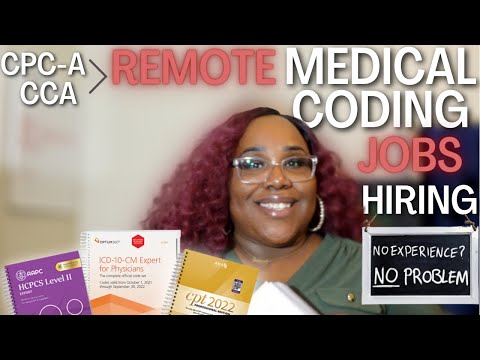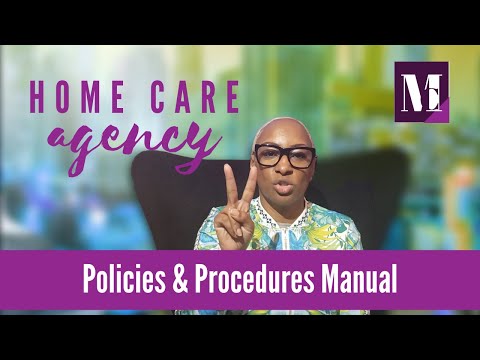How to Start a Non Medical Home Health Care Business
Contents
Home health care is a growing industry that can be lucrative for those who are looking to start their own business. There are many different ways to get started with this type of work, and some may even allow you to work remotely.
A non-Medical Home care business plan is a document that helps people who want to start their own Home Health Care business. The plan includes information about how much money the company will need, how many employees they will have and what type of services the company will provide.
This Video Should Help:
Defining Your Target Market
The first step in starting any business is to define your target market. The same is true for starting a non-medical home health care business. Who do you want to provide care for? The answer to this question will help determine the steps you need to take to get your business up and running.
There are a few different ideas to consider when it comes to target markets for non-medical home health care businesses:
-The elderly
-Those with chronic illnesses
-Those with mental illness
-New mothers
-Families of those who are terminally ill
These are just a few examples of potential target markets for your business. Once you have decided who you would like to provide care for, you can begin taking the necessary steps to get your business started.
Developing a Business Plan
Your business plan is a road map for your non-medical home health care business. It will guide you through the process of starting and running your business, and it will help you make important decisions along the way.
One of the first steps in developing your business plan is to decide what type of home health care business you want to start. There are three main types of home health care businesses:
1. Personal care agencies provide non-medical services such as bathing, dressing, and grooming to clients in their homes.
2. Home health aides provide basic medical care such as taking vital signs and providing medication reminders.
3. Hospice care agencies provide end-of-life care to terminally ill patients and their families.
Once you have decided on the type of home health care business you want to start, you need to develop a plan for how you will operate your business. Your plan should include information on the following:
1. The services you will offer and the target market for those services.
2. Your business structure (e.g., sole proprietorship, partnership, or corporation).
3. Your startup costs and how you will finance your business (e.g., personal savings, loans, or investors).
4. Your marketing strategy (e
Financing Your Business
Starting any business requires some initial investment, and a home health care agency is no different. You will need to have enough money to cover the cost of renting or buying office space, obtaining insurance, hiring employees, and marketing your business. The amount of money you will need to start your business will depend on the size and scope of your operation.
One way to finance your business is to take out a loan. You can apply for a small business loan from a bank or credit union. The U.S. Small Business Administration also offers loan programs for small businesses. Another option is to look into grants that may be available from the government or other organizations that support small businesses.
You may also choose to finance your business yourself by using personal savings or money from investors. If you go this route, be sure to draw up a solid business plan that outlines your expenses and how you plan to make a profit.
Whatever method you choose to finance your business, be sure to do your research and create a solid plan before moving forward. Starting a home health care agency is a big undertaking, but with careful planning and preparation it can be a successful and rewarding venture.
Registering Your Business
Starting a non-medical home care business is a great way to become your own boss in the growing health care industry. Home care agencies provide non-medical services to clients in their homes, such as assistance with activities of daily living, meal preparation, light housekeeping, and transportation. If you are passionate about helping others and have a business mind, then starting a home care agency could be the perfect fit for you. Use this guide to learn the steps you need to take to start your own non-medical home care business
1. Choose your business structure.
2. Register your business with the state and get a business license.
3. Choose a name for your business and create a logo.
4. Create a marketing plan and start promoting your business.
5. Hire employees and train them on the policies and procedures of your home care agency.
6. Purchase insurance for your home care agency.
7. Set up an accounting system for your home care agency.
8. Develop relationships with local health care providers
Building Your Team
Building Your Team
The first step in starting your non-medical home care business is to build your team. You will need to choose a business structure and obtain the necessary licenses and insurance. You will also need to recruit, screen, and train your caregivers.
If you are starting a home care agency, you will need to build a team of caregivers who are qualified to provide non-medical home care services. The caregivers you hire should be compassionate, reliable, and trustworthy. They should also have the necessary skills and training to provide the home care services you offer.
You can find caregivers through online job boards, classified ads, community colleges, or private agencies that specialize in home health care. Once you have found a few potential candidates, it is important to screen them carefully. Be sure to check references and conduct background checks. You should also interview the candidates to get a sense of their personality and whether they would be a good fit for your agency.
Once you have hired your caregivers, it is important to train them thoroughly on the specific home care services they will be providing. Be sure to create policies and procedures that they can follow when providing care to clients.
Creating Your Care Plans
As you develop your business plan and begin to market your agency, you will need to create specific care plans for your target population. These care plans will be the backbone of your business, providing a road map for the services you will provide and helping you to market your agency effectively.
There are a few steps you should take as you develop your care plans. First, decide what population you will serve. This may be elderly patients, disabled patients, or patients with chronic illnesses. Once you have decided on your target population, research the specific needs of that population. What care do they need? What are the best ways to provide that care?
Once you have gathered information about the needs of your target population, you can begin to develop specific care plans. Begin by identifying the types of services you will provide. Will you offer personal care? Will you provide transportation? Will you offer homemaking services? Once you have identified the types of services you will offer, research the best ways to provide those services. What methods are most effective? What are the risks involved?
As you develop your care plans, be sure to consider the unique needs of your target population. Elderly patients may need help with activities of daily living; disabled patients may need specialized equipment or transportation; and patients with chronic illnesses may need special diets or medication management. By taking the time to understand the unique needs of your target population, you can develop care plans that meet those needs and help your home health care business succeed.
Getting Licensed and Insured
There are a few steps you need to take to get your non medical home health care business up and running, including getting licensed and insured. Here’s what you need to do:
1. Get your business license. You will need to register your business with the government and obtain a business license. Depending on your state, you may also need to get a special license for home health care businesses.
2. Get liability insurance. As a home health care business owner, you will be responsible for the well-being of your clients. To protect yourself in case something goes wrong, it is important to have liability insurance.
3. Get workers’ compensation insurance. If you have employees working for you, they will be entitled to workers’ compensation in case of injury or illness. You will need to obtain this insurance from an insurance company.
4. Meet all other legal requirements. There may be other legal requirements that apply to your home health care business, such as zoning regulations or requirements for food service businesses. Make sure you are familiar with all the relevant laws and regulations before you start operating your business.
Marketing Your Business
There are a few key steps to take when youufffdre first starting your non-medical home health care business. These steps will help you get your business off the ground and ensure that you are providing the best possible care for your clients.
1. The first step is to research your local market. You need to know who your potential clients are and what their needs are. You also need to find out what other home health care agencies are in your area and what they offer. This information will help you determine what services you need to offer and how to price your services.
2. Once you have a good understanding of your local market, you need to start marketing your business. There are a number of ways to do this, but some of the most effective include networking, online marketing, and print marketing.
3. Once you have started getting some clients, itufffds important to maintain good communication with them. This includes regular updates on their condition and progress, as well as scheduling regular check-ins. This will help build trust between you and your clients and ensure that they are getting the best possible care.
4. Finally, itufffds important to always be professional and provide top-quality care. This includes being punctual, clean, respectful, and knowledgeable about the services you offer. By following these steps, you can build a successful non-medical home health care business that provides quality care for its clients.
Growing Your Business
When it comes to starting a non-medical home health care business, there are a few key steps you need to take. First, you need to decide what type of home health care agency you want to start. There are many different types of agencies, each with their own set of rules and regulations. Once you have decided on the type of agency you want to start, you need to get your business registered and licensed. After your business is up and running, you will need to start marketing your services to potential clients.
Here are a few ideas to help you get started:
1. Research the different types of home health care agencies.
2. Register your business with the state and obtain the necessary licenses.
3. Create a marketing plan for your business.
4. Start networking with other businesses in the home health care industry.
5. Join professional organizations related to home health care
Managing Your Business
Managing Your Business
As the owner of a non-medical home care agency, you will be responsible for managing all aspects of the business. While this may seem daunting, it is definitely doable with the right amount of planning and organization.
Here are a few tips to help you get started:
1. Create a business plan. This will be your road map for running the business and should include information on your target market, services offered, operating procedures, marketing strategies, and financial projections.
2. Choose a business structure. You will need to decide whether you want to operate as a sole proprietorship, partnership, limited liability company (LLC), or corporation. Each option has its own advantages and disadvantages, so be sure to consult with an attorney or accountant to help you make the best decision for your business.
3. Get the necessary licenses and permits. Depending on your state and local regulations, you may need to obtain a business license, health department permit, and/or other permits in order to operate legally.
4. Find funding for your business. If you donufffdt have the startup capital needed to finance your business yourself, you will need to look into other options such as small business loans or venture capitalists.
5. Hire employees . You will need to carefully select individuals who are compassionate and have the necessary skills to provide quality care to your clients. Be sure to run background checks and check references before making any hires.
6 . Purchase insurance . As a home care agency owner, you will be responsible for carrying liability insurance in case one of your employees is accused of negligence or abuse . You may also want to consider getting workersufffd compensation insurance in case an employee is injured while on the job . (For more information , see our article on insurance for home care agencies .)






